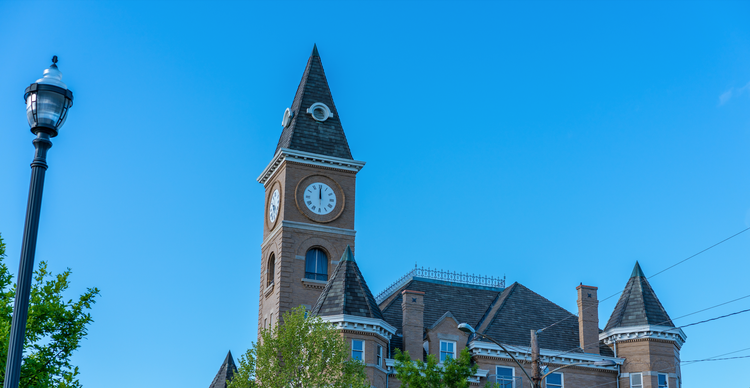Fayetteville State University is transforming teaching and learning as an Adobe Creative Campus

Image credit: Adobe Stock/ Sono Creative.
A Historically Black University in North Carolina, Fayetteville State University (FSU) has a mission to meet the educational, career, and personal aspirations of students from diverse backgrounds so they can serve as enlightened citizens, globally astute leaders, and engaged solution creators.
To help achieve its mission, the university has made it a strategic imperative to develop students’ digital literacy so they can succeed in the modern workplace. That’s why the institution recently became an Adobe Creative Campus.
Spotlighting leading institutions that value digital literacy
The Adobe Creative Campus program recognizes innovative higher education institutions like FSU that are working to foster digital literacy, access, and equity for their students.
An Adobe Creative Campus offers Adobe Creative Cloud software to students and transforms the curriculum to teach creative and persuasive communication skills across disciplines. There are 62 such institutions worldwide, including 4 Historically Black Colleges and Universities (HBCUs).
By pursuing their degrees at an Adobe Creative Campus institution, FSU students will experience a range of benefits. They’ll engage more deeply with their learning as they use industry-leading creative apps like Adobe Photoshop, Adobe Illustrator, and Adobe Premiere Pro to make everything from posters and infographics to podcasts and documentary films. They’ll be able to take part in Creative Jams and other higher education events that help them develop their design, presentation, and communication skills. And they’ll have the opportunity to graduate with visual, audio, and storytelling skills that can accelerate their career path and help them advance more quickly in their careers.
Transforming teaching and learning at FSU
In a recent report from Technology Magazine, Dr. Hector Molina, FSU’s Vice Chancellor for Information Technology and CIO, discussed the institution’s efforts to foster digital literacy with Creative Cloud.
“What Adobe allowed us to do is elevate the digital literacy of our students,” he said. “Letting them use the tools and develop skills to create change and communicate content that’s applicable to the future, but then also applicable to the industries they’re targeting.”
Dr. Todd Taylor, pedagogical evangelist on the Adobe Education team, echoed this thought. “These very important technologies need to be part of the academic experience,” he told Technology Magazine. “Regardless of their major, or their career path, becoming a digital communicator is something we know everyone needs in today’s economies and cultures.”
Taylor said that the new partnership between Adobe and FSU will help prepare students to be “global citizens and digital global citizens by moving them away from being passive, disconnected consumers of other people’s content to then becoming active, connected producers of their own ideas — and putting those ideas into circulation.”
As Adobe and FSU begin working together, Adobe is cultivating a group of faculty who will lead the way and help their colleagues infuse digital literacy and Creative Cloud tools into their classes in relevant ways. And since one of the exclusive benefits of the Adobe Creative Campus program is participation in hands-on Adobe Faculty Development Institute workshops, FSU educators can look forward to support and mentorship all year long.
“It’s great to see FSU, a historically overlooked and under-resourced campus, now get these kinds of opportunities to really create meaningful careers and pathways to careers for their students,” Dr. Taylor told Technology Magazine. “We have a long way to go, but this partnership between Fayetteville State and Adobe is a great place to start.”